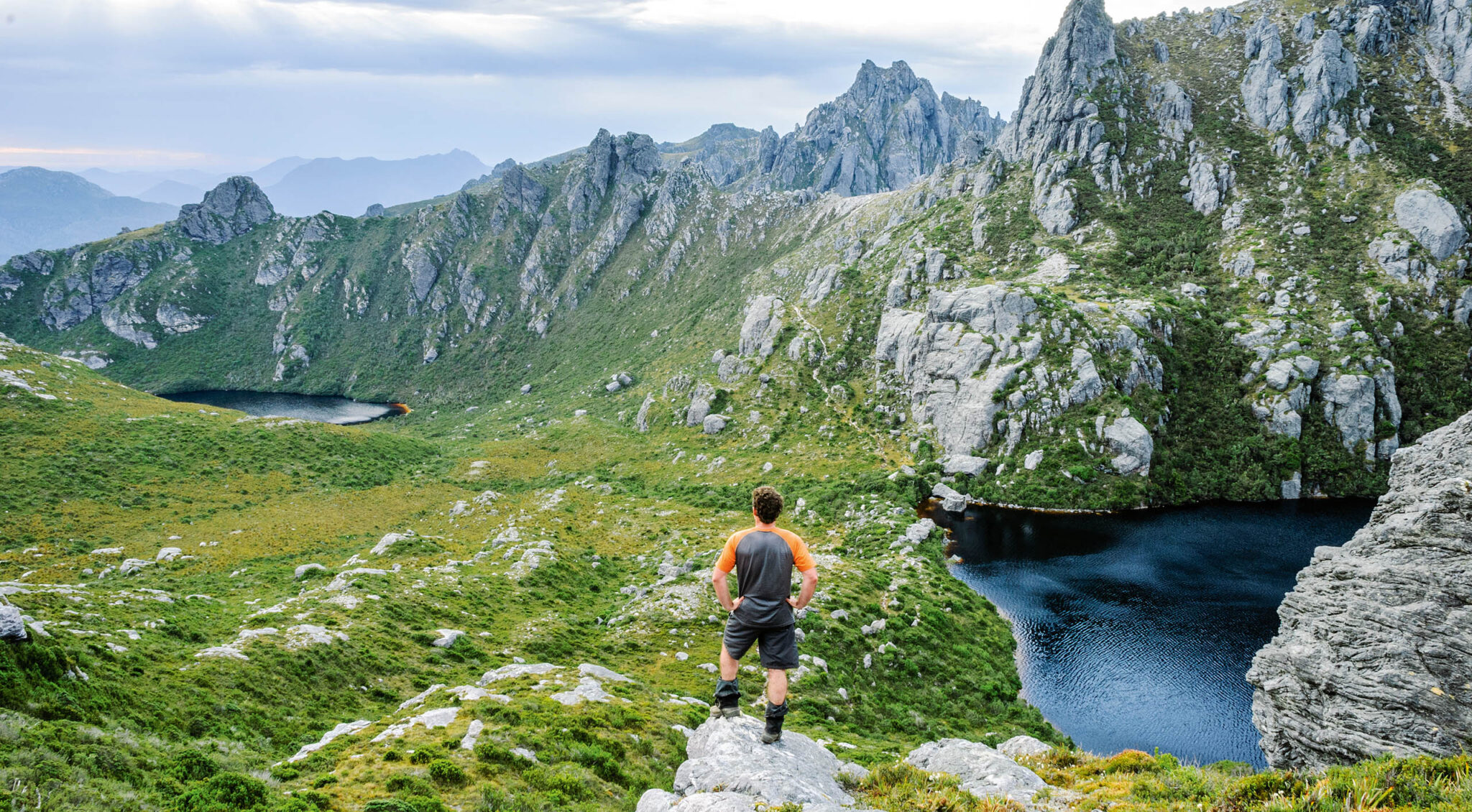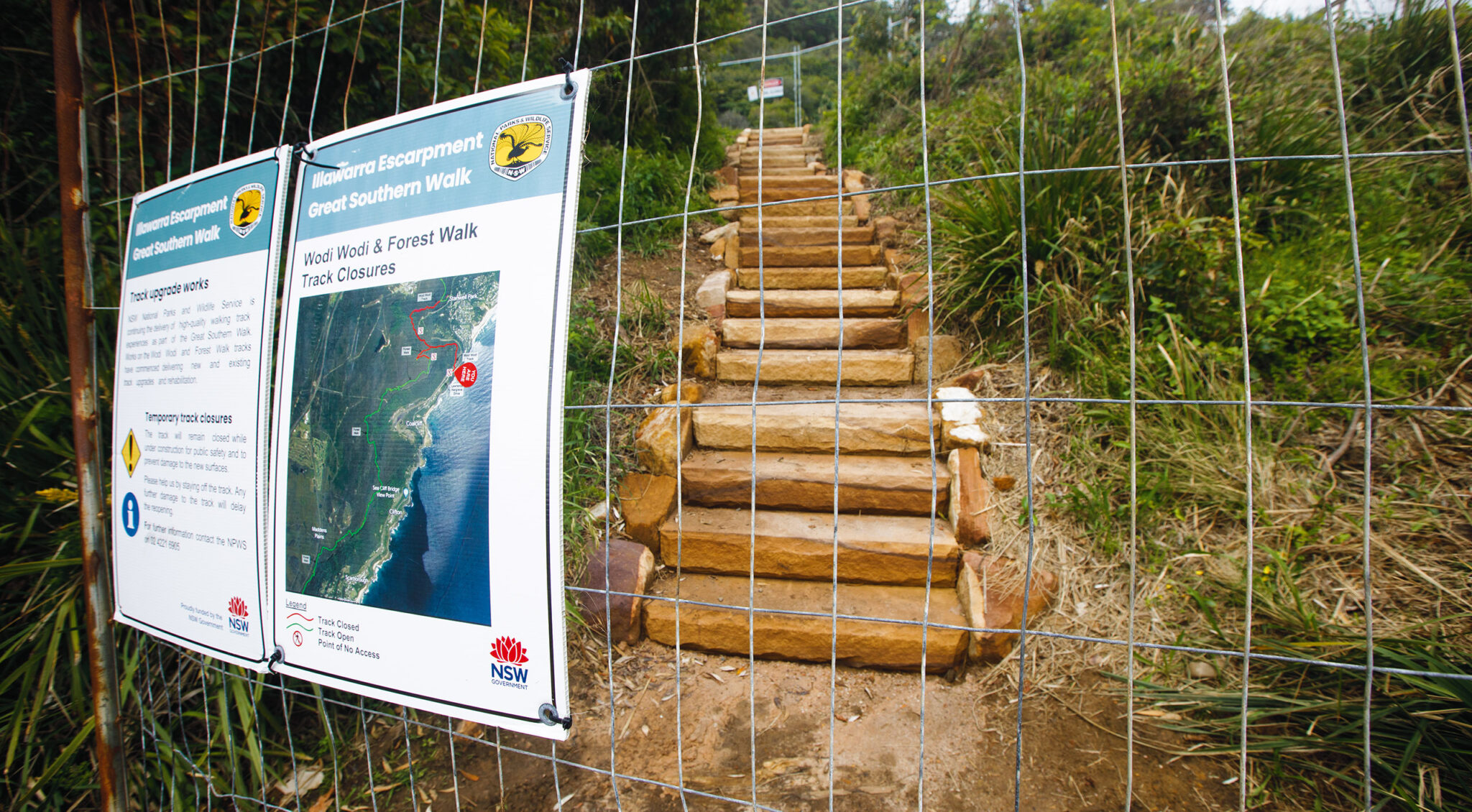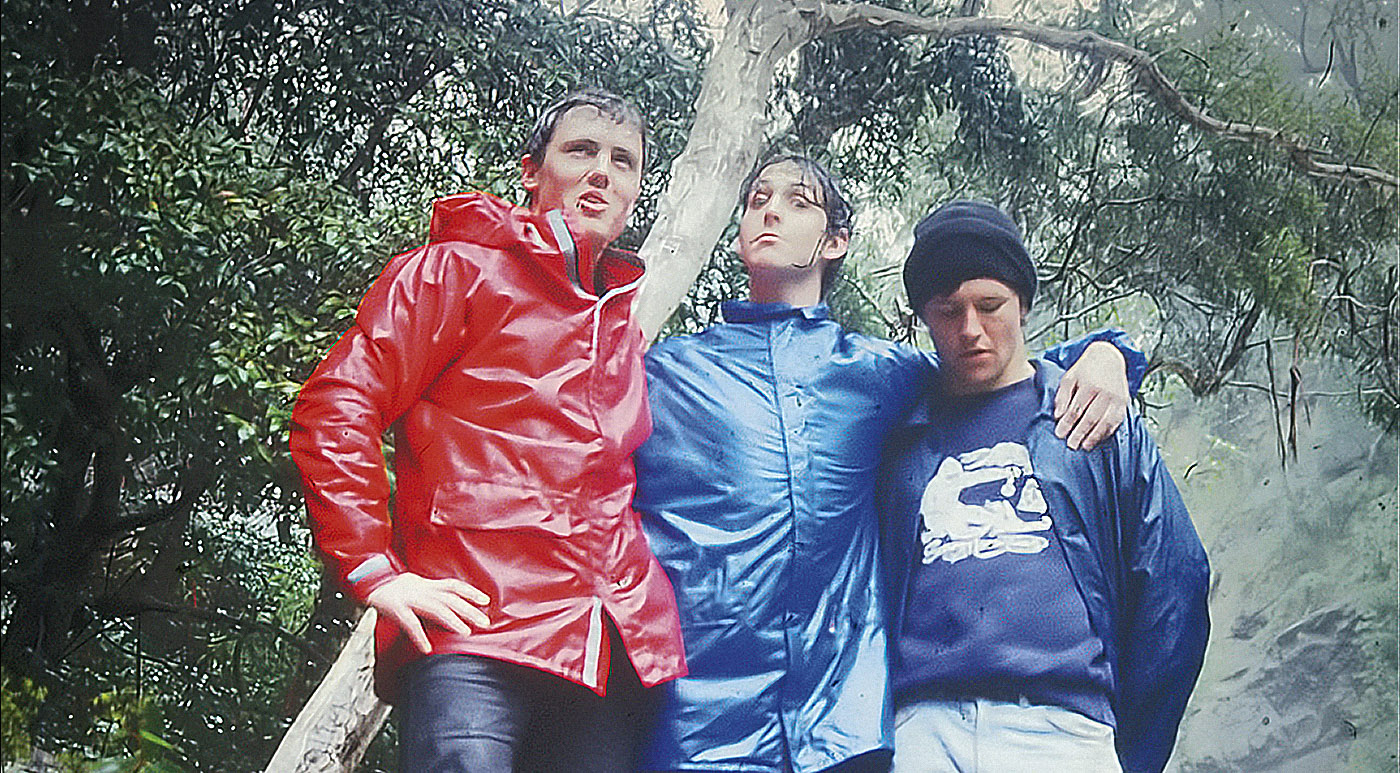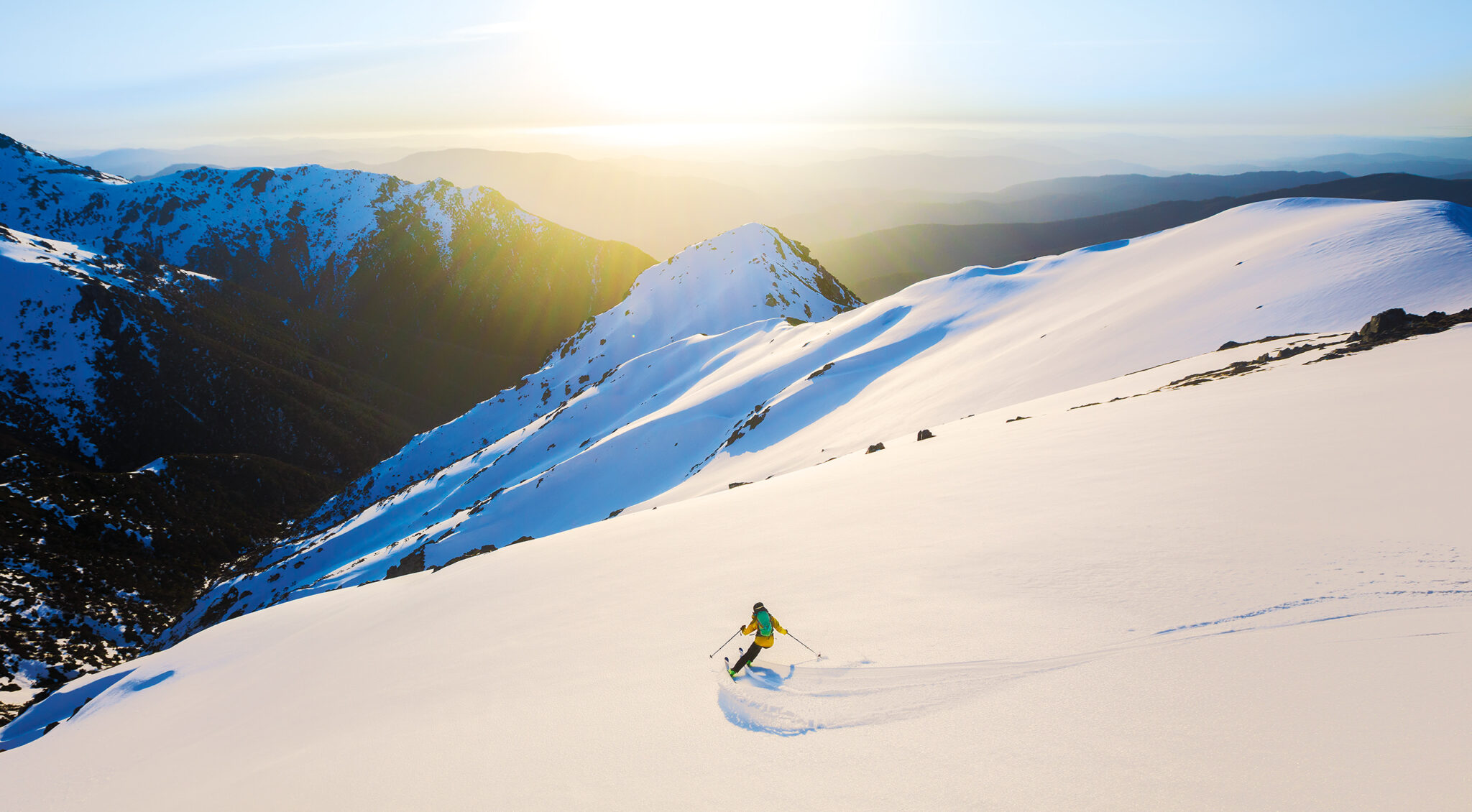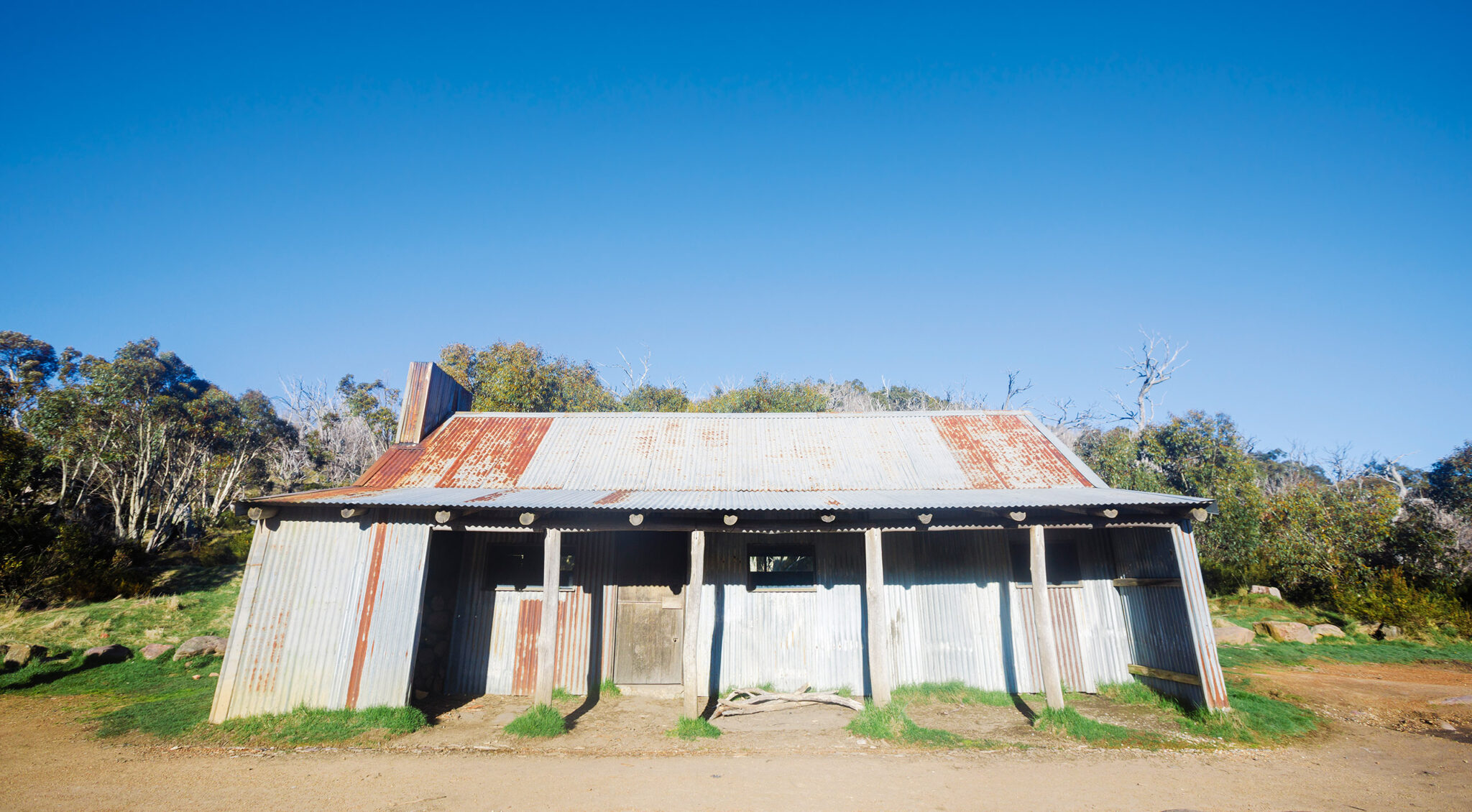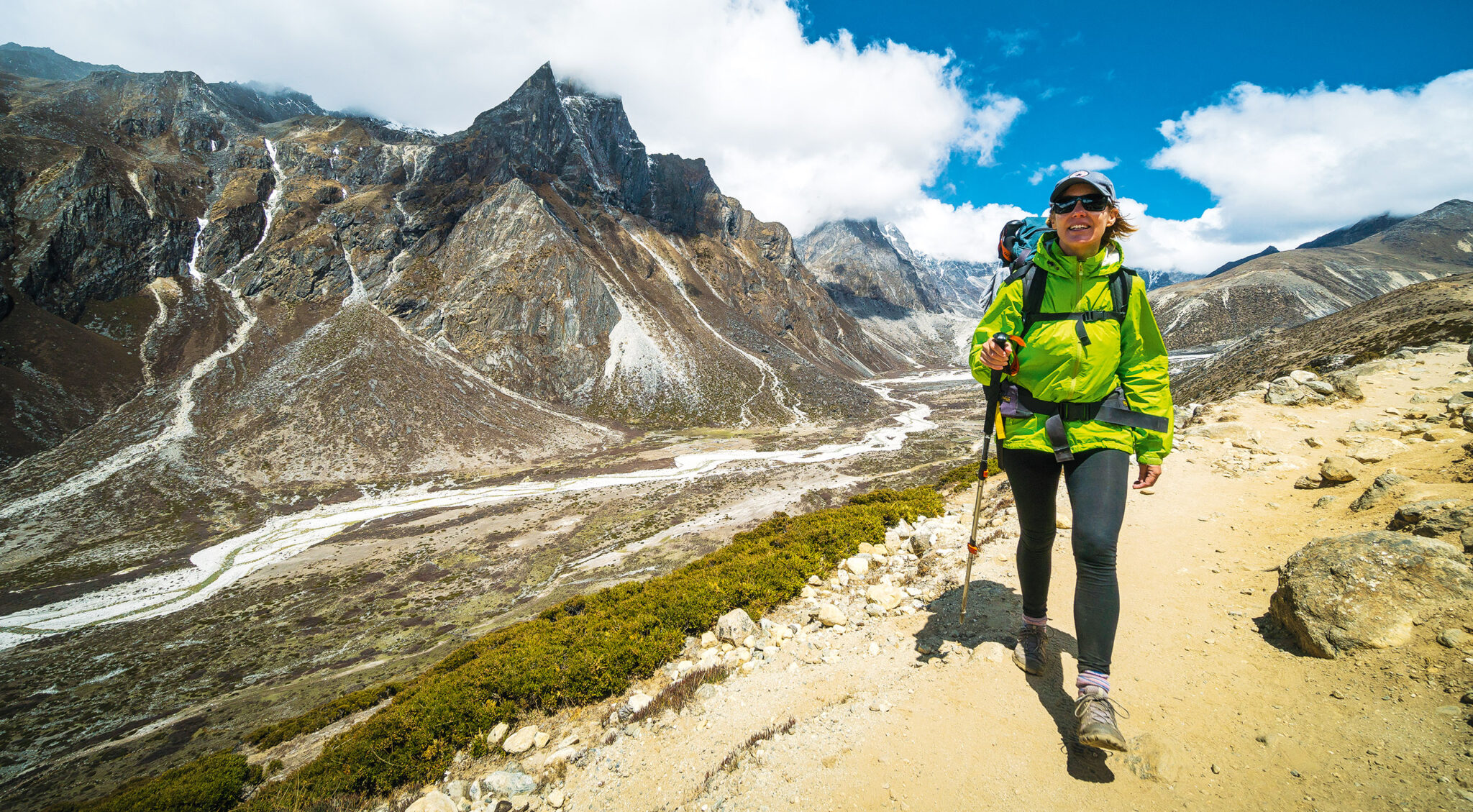From the Editor: Great Expectations
Image caption: Funnily enough, I had similarly low expectations when I went into the NSW backcountry in 2023. A crap season, I’d heard. Instead, I had a blast. Pictured: Shaun Mittwollen with the Sentinel in the background
(This story originally featured in Wild #191, Autumn 2024)
Last month, I went skiing. Actually, by the time you read this, it will have been at least two months ago, if not more. I was in northern Idaho in the US, where I have relatives, and this last January, in 2024, was my fourth time visiting at that time of year. And compared to every other visit, the snow was lean and crappy, probably not even half the depth of the next lowest mid-January snowpack I’ve ever encountered in that part of the world. It wasn’t just Idaho that was affected, either; it was pretty much the entire US, both East and West Coasts, that had low tide conditions, and Canada too. Only Alaska seemed to have escaped unscathed.
This is highly unusual. Normally, if one part of North America has low snow, other regions are getting hammered. That includes during El Nino years. But not in 2024. A few days before arriving, barely a quarter of the ski hill I was heading to was open. At nearby Sun Valley, it was nearing just ten per cent open. In mid-January. And it was the same across the continent. It was arguably the worst start to any winter that North America has ever seen, and it’s hard to discount anthropogenic
climate change as being the culprit.
But I’m not writing this to talk about how we, as a species, need to pick up our game, about how our leaders seem embarrassingly reticent to tackle head on the ecological calamity that awaits our planet. Instead, I’m writing this to talk about the fact that I had an absolutely awesome trip. Four days out from our arrival, it began properly snowing for the first time this winter. I’d mentally prepared for no skiing at all, so even though the snow totals were low historically—in fact, pathetically low—just getting onto the slopes at all seemed to be a massive win. I’d mentally prepared for snowshoeing for two weeks; instead, I had a blast.
The point with this is to talk about how expectations govern our happiness. You could argue that being a pessimist helps, but if that was the case, then you’d only dwell on the less-than-perfect elements while you’re actually doing the activity. Ie, even if conditions were good, you’d still dwell on the worst. Ideally, perhaps, you’d want a mindset that’s pessimistic in advance, but that flips to being wildly optimistic once you arrive. Better yet though, you might adopt a Buddhist attitude—or if you prefer, a Buddhish attitude, that is, Buddhist-inspired thought for non-Buddhists; I only heard the term for the first time recently—of simply saying this: “Shit happens.” And then rolling with it.
I was not raised Buddhist. But I have spent enough time in the outdoors to learn that shit happens, and regularly at that, and there’s little you can do but learn to deal with it. There have been crappy ski seasons, unstable snowpacks, cancelled hiking trips, floods, unseasonable weather, droughts, injuries, sickness, storms, unreliable partners, yes, even wars—all have conspired against me, yet all have taught me the value of not setting expectations too high.
And it’s not just me, of course. Anyone who has spent any length of time outdoors has learnt enforced humility—weather, the seasons, climate. In short, Nature (yes, with a capital N) is so much greater than all of us that our aspirations seem like the tiniest of gnats waiting to be trampled by the largest of elephants. Any joy we have outdoors is not so much earned as granted.
The upshot of all this is that, and I truly believe this, the outdoors makes us happier, if by virtue only that it forces us to accept whatever is thrown at us: the good, and in particular, the bad. Many will argue that nature makes us happier because it clears out our minds, because it forces us to live simply, because it puts us into places of life-affirming beauty, because—atavistically—we descended from trees and that as a result, we feel at home in the trees (although deserts can be incredibly calming, too).
I don’t think these arguments are lacking in validity. But as important as all these elements are in terms of creating happiness, I think they’re less important than the simple lesson of learning to keep your expectations in check, or at the very least, learning to deal with those occasions when expectations aren’t met. These aren’t always easy lessons; often, they involve bitter disappointments and dashed hopes and unrequited dreams. But the more times the outdoors teaches these lessons, the more they sink in, and the more we learn to accept what is. And in the end, happiness is the result.
If you liked this piece, you should subscribe to the print mag. Only a fraction of the great stories we run in the mag make it to our website; if you want to read them, head to subscribe.wild.com.au.


